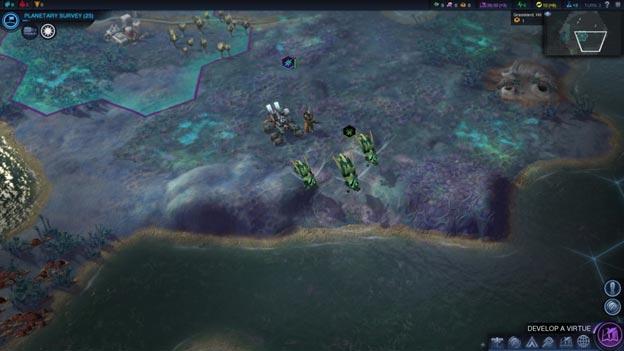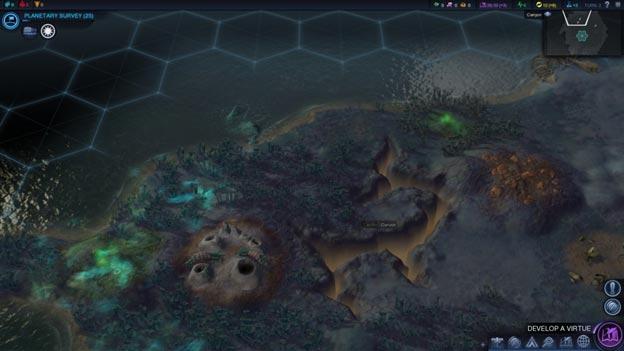Sid Meier's Civilization: Beyond Earth
Overview -
The first 'Civilization' game was released in 1991 (on floppy disks) and has been widely hailed as one of the most influential PC games of all time, especially in the realm of strategy. In 1999, 'Civ' developer Firaxis released 'Alpha Centauri', a turn-based strategy (TBS) title that was similar to the 'Civ' titles but took place in outer space, on an alien planet. This year’s title, 'Sid Meier's Civilization: Beyond Earth', could be best described as a lovechild between 2010’s 'Sid Meier's Civilization V' (with which it shares an engine) and 'Sid Meier's Alpha Centauri'. It is again set in outer space, with the player competing against not just human factions, but alien creatures and the planet itself.
Video Review

'Beyond Earth' uses the LORE engine, which Firaxis first created for 'Civ V' back in 2010. It’s not as old as some engines (Valve’s ancient Source comes to mind), but it has not aged well. Even with the graphics settings cranked up to "Ultra”, the game still looks a few years old. It’s not bad for a few years old, but not cutting-edge either. The colony leaders are only moderately detailed when they appear in the diplomacy window, and the units on the ground look a bit blocky when zoomed in on. In its defense, the colors are lovely and much more diverse than previous games. There is also a bit of late draw-in when moving the map around or loading up a game, but perhaps that is a fair trade-off when playing a game that requires no loading after the initial match setup. I would like to have seen more cinematics, especially after a victory.
Audio Review

The game’s soundtrack is one of the best I’ve heard from a PC title in a long time. It has a bright, epic feel to it, reminiscent of early space exploration movies and space operas. It went a long way towards drawing me into the game’s futuristic, optimistic premise. The sound effects and voice acting are superb, especially the pithy quotes that play with the introduction of a new technology or wonder.
Final Thoughts

'Sid Meier's Civilization: Beyond Earth' is the best 'Civilization' I have played, and I have been with the series for quite a while. Every feature has been upgraded or expanded from previous iterations, and some are brand new, like the affinities and increased pregame customization. The level of personalization through each playthrough is deep, far deeper than any game so far in the series. It holds my attention from beginning to end, where in other 'Civs' I often found myself drifting away around the discovery of gunpowder. It is a wonderful love letter to fans of 'Alpha Centauri' and certainly one of the best turn-based releases this year.












